Hey there, Bitcoin enthusiast! So, you’ve jumped on the crypto bandwagon and bought yourself some digital gold. Awesome! But now comes the tricky part – keeping your precious coins safe from the clutches of hackers and scammers. Don’t worry, I’ve got your back. Let’s dive into the world of Bitcoin security and turn you into a fortress of digital asset protection!
1. Understanding Bitcoin Wallets
1.1 Types of Bitcoin wallets
First things first, let’s talk about Bitcoin wallets. No, I’m not talking about those leather things you stuff in your back pocket. Bitcoin wallets are more like digital vaults where you store your crypto keys.
There are several types:
- Hardware wallets (like a high-tech USB stick for your Bitcoin)
- Software wallets (apps on your phone or computer)
- Paper wallets (literally a piece of paper with your keys written on it)
- Online wallets (web-based services)
Each has its pros and cons, kind of like choosing between a safe, a piggy bank, or stuffing cash under your mattress.
1.2 The importance of private keys
Now, let’s talk about private keys. Think of your private key as the master password to your Bitcoin kingdom. Lose this, and you might as well kiss your Bitcoin goodbye. It’s like losing the keys to your house – but instead of calling a locksmith, you’re out of luck (and potentially a lot of money).
Remember: “Not your keys, not your coins.” This isn’t just a catchy phrase; it’s the golden rule of Bitcoin security.
2. Choosing the Right Wallet
2.1 Hardware wallets: The fort knox of Bitcoin storage
If you’re serious about security (and if you’re reading this, I bet you are), hardware wallets are your best friend. These nifty devices store your private keys offline, away from the prying eyes of internet baddies.
Popular options include Ledger and Trezor. Using a hardware wallet is like keeping your money in a personal, portable bank vault. Sure, it’s a bit pricier than other options, but can you really put a price on peace of mind?
2.2 Software wallets: Balancing convenience and security
Software wallets are the Swiss Army knives of the Bitcoin world – versatile and always at hand. You can get them for your smartphone or computer, making it easy to manage your Bitcoin on the go.
But remember, your coins are only as safe as the device you keep them on. Using a software wallet on a malware-infested computer is like storing your life savings in a cardboard box – not the best idea.
2.3 Paper wallets: Old school but effective
Ah, paper wallets – the vinyl records of the crypto world. They’re a bit old school, but they have their charm. A paper wallet is simply a physical document containing your public and private keys.
The upside? They’re completely offline and immune to hacking. The downside? They’re vulnerable to all the things that can destroy paper – fire, water, hungry pets… you get the idea.
3. Essential Security Measures
3.1 Use strong, unique passwords
I know, I know – you’ve heard this a million times. But seriously, your password is like the lock on your front door. Would you secure your house with a lock that could be opened by jiggling the handle?
Create a password that’s longer than a CVS receipt and more complex than quantum physics. And please, for the love of Satoshi, don’t use the same password for everything!
3.2 Enable two-factor authentication (2FA)
Two-factor authentication is like having a bouncer for your Bitcoin club. Even if someone guesses your password, they still can’t get in without that second form of verification.
Use an authenticator app rather than SMS for 2FA. SIM swapping attacks are a thing, and you don’t want to be caught with your digital pants down.
3.3 Keep your software updated
Software updates are like vitamins for your devices – they might seem annoying, but they’re good for you. Developers are constantly patching security holes, and you want to make sure you’re protected against the latest threats.
Set your devices to update automatically. It’s like having a personal security team working around the clock to keep your Bitcoin safe.
4. Safeguarding Your Private Keys
4.1 The dangers of digital storage
Storing your private keys digitally is convenient, but it’s also risky. Your computer or phone can be hacked, stolen, or decide to impersonate a paperweight at the worst possible moment.
Remember: The internet is a dangerous neighborhood. Don’t leave your keys lying around for anyone to find.
4.2 Secure offline storage methods
Offline storage, or “cold storage,” is like putting your Bitcoin in cryogenic freeze. It’s safe, secure, and away from online threats.
Consider engraving your seed phrase on a fireproof, waterproof metal plate. It’s like creating your own little Bitcoin time capsule – secure for the long haul.
4.3 The art of creating a secure backup
Backups are crucial. Think of it as Bitcoin insurance. But don’t just scribble your seed phrase on a Post-it note and call it a day.
Create multiple copies and store them in different secure locations. It’s like hiding treasure – the more elaborate your system, the safer your booty.
5. Advanced Security Techniques
5.1 Multi-signature wallets
Multi-signature wallets are like a digital version of those movie scenes where it takes two keys to launch the nuclear missiles.
They require multiple private keys to authorize a transaction. It’s an extra layer of security that can save your bacon if one key is compromised.
5.2 Using a dedicated device for transactions
Consider using a dedicated device for your Bitcoin transactions. It’s like having a separate phone just for your million-dollar deals.
This device should never be used for general web browsing or installing random apps. Keep it clean, keep it secure, and only use it for your crypto activities.
5.3 Cold storage for long-term hodling
If you’re in it for the long haul (hello, fellow hodler!), consider using cold storage. This means keeping the bulk of your Bitcoin completely offline.
It’s like putting your crypto in a high-security vault – a bit inconvenient to access, but you can sleep easy knowing it’s safe and sound.
6. Common Pitfalls and How to Avoid Them
6.1 Phishing attacks: Don’t take the bait
Phishing attacks are the catfishing of the crypto world – things aren’t always what they seem. Be wary of emails or websites asking for your private keys or seed phrase.
Remember: No legitimate service will ever ask for your private keys. Anyone who does is trying to steal your Bitcoin, plain and simple.
6.2 The risks of public Wi-Fi
Public Wi-Fi is convenient, but it’s about as secure as a screen door on a submarine when it comes to Bitcoin transactions.
Avoid accessing your Bitcoin wallets or making transactions on public Wi-Fi. If you must, use a VPN. It’s like wearing a disguise in the digital world.
6.3 Beware of clipboard hijacking
Clipboard hijacking is a sneaky attack where malware replaces Bitcoin addresses you copy with the attacker’s address.
Always double-check the address before sending Bitcoin. It’s like measuring twice and cutting once, but for crypto transactions.
Conclusion
Phew! We’ve covered a lot of ground, haven’t we? Securing your Bitcoin might seem like a daunting task, but it’s absolutely crucial in the wild west of cryptocurrency. Remember, you are your own bank now – and with great power comes great responsibility.
By implementing these best practices – choosing the right wallet, using strong passwords and 2FA, safeguarding your private keys, and staying vigilant against common attacks – you’re well on your way to becoming a Bitcoin security pro.
Just remember: No security system is perfect, but by layering multiple security measures, you can make it incredibly difficult for the bad guys to get their hands on your digital gold. Stay safe, stay secure, and happy hodling!

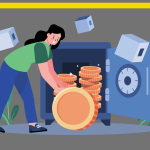
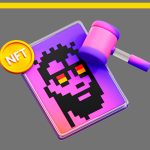
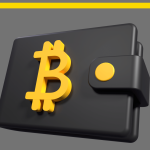

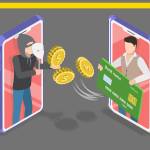


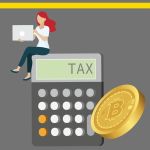


 Bitcoin
Bitcoin  Ethereum
Ethereum  Tether
Tether  Solana
Solana  USDC
USDC  XRP
XRP  Lido Staked Ether
Lido Staked Ether  Dogecoin
Dogecoin  Toncoin
Toncoin